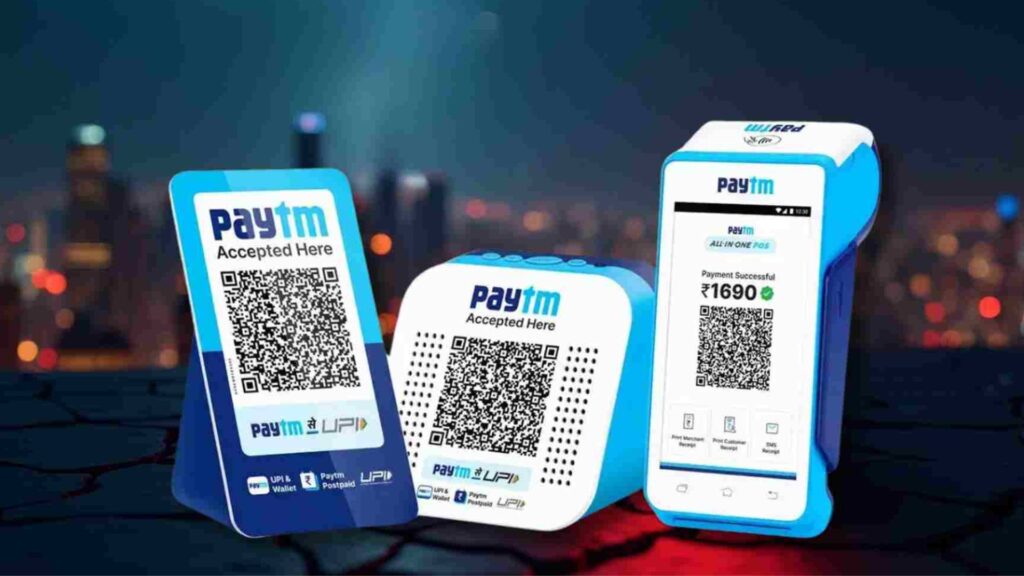
Shares of One 97 Communications, the parent company of digital payments firm Paytm, nosedived by as much as 10% on Thursday, touching an intraday low of ₹864.40 on the BSE. The sharp decline followed a clarification from the Ministry of Finance, firmly denying reports that the government is considering the imposition of a Merchant Discount Rate (MDR) on UPI transactions.
As of 10 a.m., Paytm stock was trading nearly 6% lower, significantly underperforming the broader Nifty 50 index, which saw a modest dip of 0.14%. This marks Paytm’s steepest intraday decline since February 2024, as investor sentiment soured after hopes of improved revenue models for payment service providers were dashed.
On Wednesday, the finance ministry dismissed media reports claiming that MDR charges could be introduced for large merchants using the Unified Payments Interface (UPI). In a post on X (formerly Twitter), the ministry stated, “Speculation and claims that the MDR will be charged on UPI transactions are completely false, baseless, and misleading. Such baseless and sensation-creating speculations cause needless uncertainty, fear, and suspicion among our citizens.”
The denial comes in the wake of continued lobbying by the Payments Council of India (PCI), an industry body representing over 180 digital payment companies. Earlier in March, the PCI had urged the government to consider implementing an MDR of 0.3% on UPI transactions for large merchants, along with a nominal MDR on RuPay debit cards for all merchants.
The PCI has repeatedly cautioned that the absence of an MDR makes the digital payments ecosystem financially unsustainable in the long run. Despite a government incentive of ₹1,500 crore, the council estimates that the sector requires nearly ₹10,000 crore annually to maintain robust infrastructure, cybersecurity, and customer support.
Members of the PCI include prominent digital payment platforms such as Amazon Pay, PhonePe, Paytm, and Razorpay—all of which stand to benefit if MDR charges were permitted on high-volume transactions.
Thursday’s stock reaction reflects growing investor concern over the long-term viability of zero-MDR policies, especially for companies like Paytm that rely heavily on UPI-based transactions without earning fees from merchants.
While the government remains steadfast in its commitment to promote free digital payments, questions about sustainability and fair compensation for payment providers are likely to persist within the fintech ecosystem.




